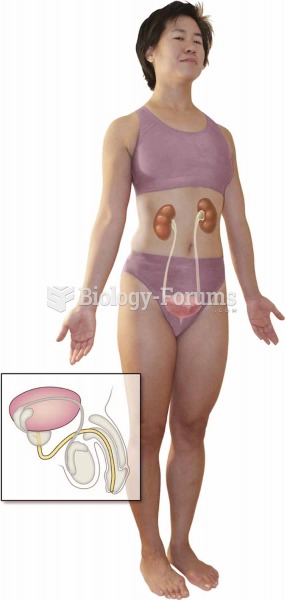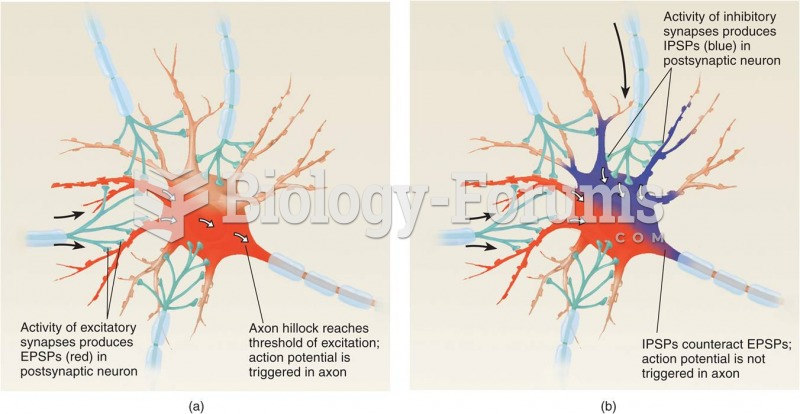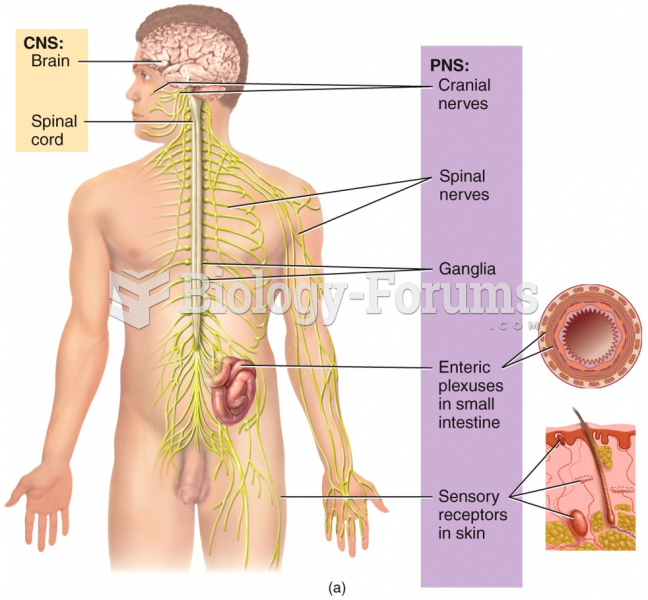|
|
|
Human stomach acid is strong enough to dissolve small pieces of metal such as razor blades or staples.
Illicit drug use costs the United States approximately $181 billion every year.
Each year in the United States, there are approximately six million pregnancies. This means that at any one time, about 4% of women in the United States are pregnant.
The longest a person has survived after a heart transplant is 24 years.
Hippocrates noted that blood separates into four differently colored liquids when removed from the body and examined: a pure red liquid mixed with white liquid material with a yellow-colored froth at the top and a black substance that settles underneath; he named these the four humors (for blood, phlegm, yellow bile, and black bile).







